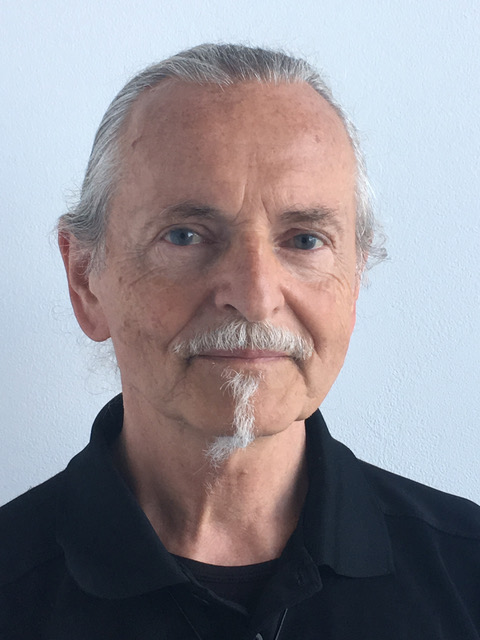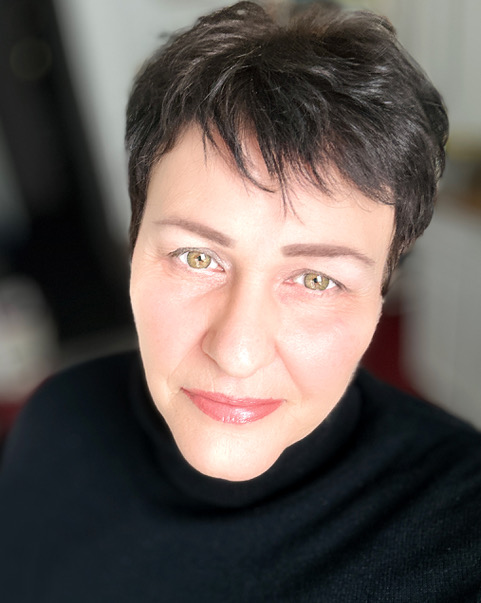Skip to main content
An exploration of the healing power of art: "Krzysztof Wodiczko: The Art of Un-War" film screening followed by a conversation and Q&A with artist Krzysztof Wodiczko and director/producer Maria Niro.
Krzysztof Wodiczko: The Art of Un-War (1hr 4min), a film directed and produced by Maria Niro, explores the life and work of renowned artist Krzysztof Wodiczko. It delves into Wodiczko’s powerful artistic interventions created as responses to the inequities and horrors of war and injustice. The artist’s interventions throughout the narrative become powerful examples of how art can be a catalyst for social change and healing.
For over 50 years, Wodiczko has explored the profound impact of violence on humanity and the transformative power of art as a medium for public discourse. The film explores Wodiczko’s monumental slide and video projections on architectural facades and monuments, which serve as powerful vehicles for addressing themes such as war trauma, displacement, history, memory, and public communication.
This screening will be followed by a discussion and Q&A with director Maria Niro, who will be attending in person, and Krzysztof Wodiczko who will participate via Zoom. The forum will be moderated by UToledo faculty members Barry Jackisch and Mysoon Rizk.
This program has been made possible thanks to the extraordinary support provided by a Spark Grant from Ohio Humanities, in addition to UToledo's Peace and Justice Studies Program in the Judith Herb College of Education, the College of Arts and Letters, the Department of Art, the Roger Ray Institute for the Humanities, the Disability Studies Program, the Department of History, the Law and Social Thought Program, the Department of Theatre and Film, and Women’s and Gender Studies.

Krzysztof Wodiczko, Artist
Krzysztof Wodiczko is renowned for his large-scale slide and video projections on architectural facades and monuments. He has realized more than 90 such public projections in Australia, Austria, Belgium, Canada, England, Germany, Holland, Northern Ireland, Israel, Italy, Japan, Mexico, Poland, Spain, Switzerland, and the United States. Since the late 1980s, his projections have involved the active participation of marginalized and estranged city residents. Simultaneously and internationally, he has been designing and implementing a series of nomadic instruments, vehicles, and other cultural equipment with unhoused individuals, immigrants, alienated youth, war veterans, and other operators for their survival, communication, and expression in public space.
Wodiczko received the Hiroshima Art Prize “for his contribution as an international artist to the world peace” and represented Poland and Canada in the Venice Biennale (Canadian Pavillion and Polish Pavilions). He is also a recipient of the Skowhegan Medal for Sculpture, the Georgy Kepes Award, MIT, the Katarzyna Kobro Prize, and the “Gloria Artis” Golden Medal from the Polish Ministry of Culture. Krzysztof Wodiczko is a Professor Emeritus of Art, Design, and the Public Domain at Harvard’s Graduate School of Design, Visiting Professor at the Media Art Department at the Academy of Fine Arts in Warsaw, and a Distinguished Visiting Professor at the University of Pennsylvania in Philadelphia.

Maria Niro, Director/Producer
Maria Niro is an award-winning artist and filmmaker based in New York City. Her work has received global recognition, with broadcasts on television and screenings in theaters, festivals, and museums worldwide. She is a member of New Day Films, a filmmaker-run distribution company co-founded in 1971 by renowned documentary filmmaker, activist, and feminist Julia Reichert in 1971. Niro’s artistic pursuits encompass a diverse range of disciplines, including film, video, photography, and sound. She has directed, produced and edited short films and long-form documentaries.
About the Roger Ray Institute for the Humanities
The Roger Ray Institute for the Humanities, in the College of Arts and Letters, at The University of Toledo, advocates for and supports the study of human culture—from a great variety of fields—at all levels of learning and scholarship, through both disciplinary and interdisciplinary means. It seeks both to sustain the work of humanities-related inquiries at UToledo and also to foster the dissemination of that knowledge and expertise to a larger community of learners, both inside and outside higher education.
This program has been made possible in part by the National Endowment for the Humanities: Democracy demands wisdom. Any views, findings, conclusions, or recommendations expressed in the program do not necessarily represent those of Ohio Humanities or the National Endowment for the Humanities.
AGE GROUP: | Adults (18+) |
EVENT TYPE: | Performances/Special Events | Movies | History/Travel/Genealogy |